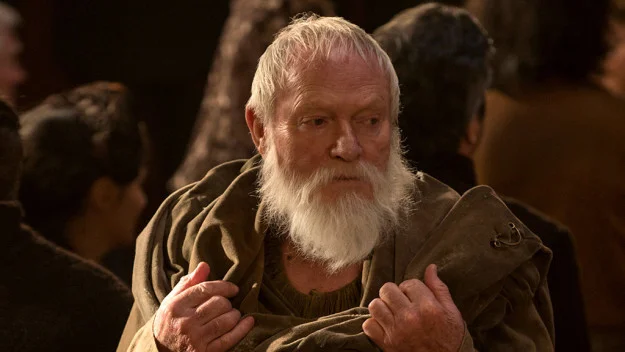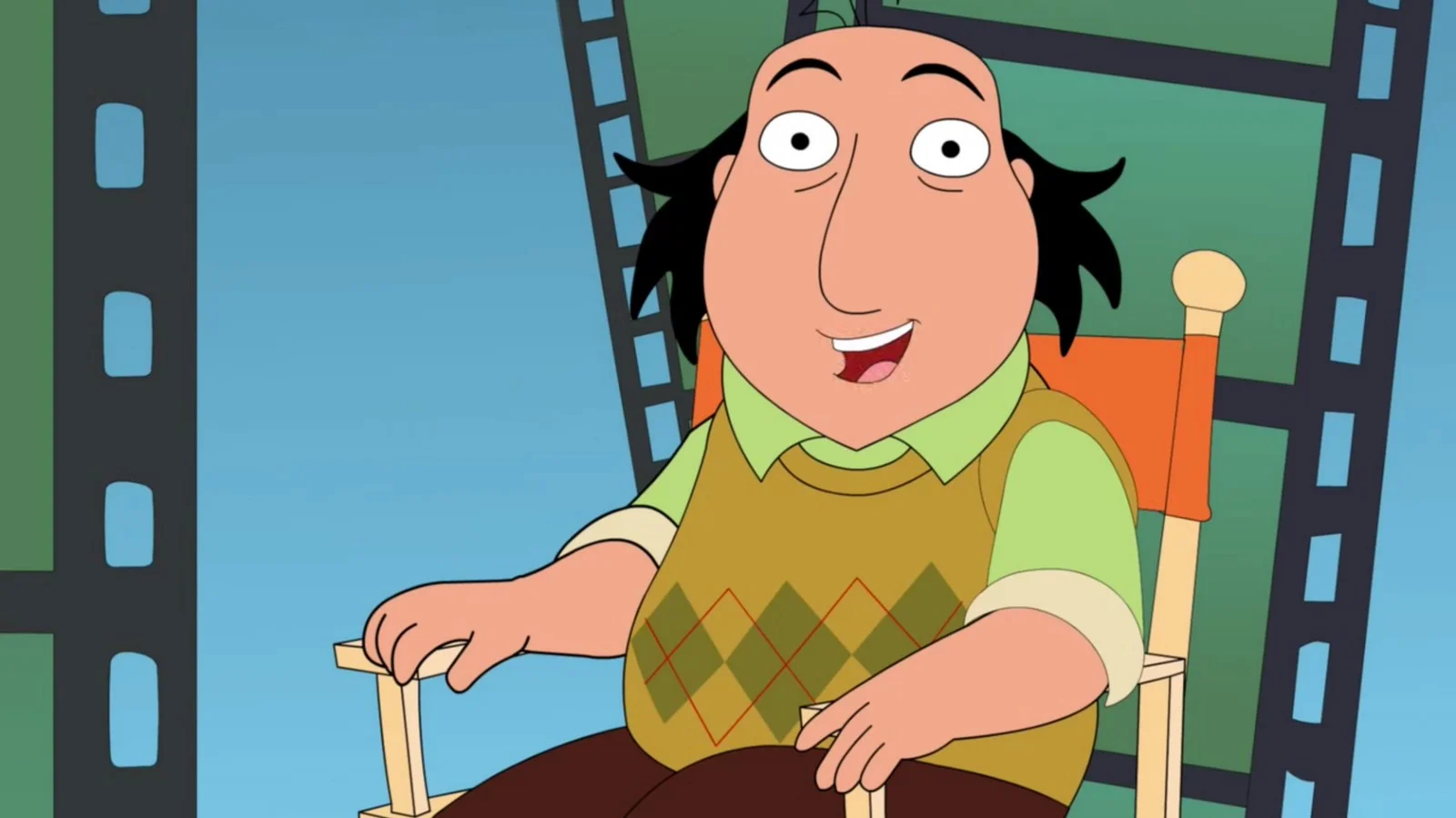5 Ways to Outsmart the Movie/Show You're Currently Watching
* This review contains spoilers *
When Josie and I started dating, her capacity to tell what was going to happen before it would actually happen in a movie really impressed me. It was like she already seen them all. So, I thought my fiancée had a supernatural gift for the longest time, but it turned out she just watched movies more attentively than I did and built a wealth of knowledge I was previously oblivious to.
See, movies use what is called visual shorthand, a common language that allows you to instantly understand what’s going on: nerds have glasses, Satanists have goatee, thugs wear leathers jackets, etc. There are three basic examples, but visual shorthand and narrative shortcuts got quite sophisticated over time and movies (I watch mostly thrillers and horror movies) have developed a language that pretty much tells you everything you need to know before they actually do.
Here are 5 examples of what I’m telling you about:
The quiet nerd is either the key or comedic relief
Whenever a nerd shows up on screen, it’s never innocent. They’re easily recognizable too: they have classes, oily hair and no sense of style whatsoever. They walk with their shoulders hunched and live in inexplicable fear of jocks. Nerds can’t ever enjoy sports and jocks can never enjoy anything intellectual. Thus is the law of movies. They’re always either the protagonist (Spider-Man, Scott Pilgrim vs the World, New Girl), key to the narrative (Bran Stark, Lucius Fox) or the butt of every joke (Revenge of the Nerds, American Pie, etc.).
The thinking behind this is simple. Maybe even simplistic: nerds are perceived to have the most room for personal growth. That being a nerd is a phase you need to grow out of to become a well-adjusted person. They are inherently intelligent, so they’re more likely to learn from their mistakes and evolve. At least in the collective consciousness. The visual looking-field for nerds in cinema also makes them fertile ground for easy jokes and slapstick humor. That’s why we have countless movies who are supposed to celebrate them and make fun of them instead. Anyway, keep an eye on that nerd. (S)he’s important.
Closest friends are the likeliest to betray
Here’s a surefire way of never having your heart broken when watching an action movie or a thriller: never trust your protagonist’s close friends. Especially if they’re sympathetic or talkative. They become intimate with the protagonist and get him open up, revealing information that is 1) important for the viewer to understand and 2) that would make them extremely vulnerable if… let’s say someone parlayed that information to enemies in exchange for his profit/survival. Star Wars’ Lando Calrissian being the prime example.
Friend betrayal in movies and television show is a narrative shortcut that became visual shorthand with repetition over the years. It’s the most straightforward way to make your antagonist learn crucial information to use against the protagonist. It’s always the likeliest way he would. Even when they’re well-intentioned, close friends and allies are always likely to betray. Because they don’t have the psychological fortitude or the self-respect your protagonist has. Always doubt their motivation. Always doubt their dedication and most important, never ever trust them.
The guy with the funny haircut is an asshole
Whether the movie makes it clear or not that he’s the bad guy, never EVER trust a character with a dumb haircut in a movie where everybody else’s hair is normal. If you wouldn’t spend a day with that hair on your head, it means the character’s either profoundly narcissistic or a straight out psychopath. Most Bond villains have funny hair. Anton Chigurh in No Country for Old Men has seemingly the same hair than he had when he was 7 years old. Fucking David Bowie in Labyrinth. Ozymandias in Watchmen.
Some movies will have bad hair because it’s of their time. Lost Boys, Hard Target, etc. But if the hair (and to some extent the look) detracts from every other character in the movie, it betrays a skewed and inflated self-perception. That dude (or dudette) is fucked up. Baldness and scars are traditional telltale signs of villainy, but keep an eye for funny hair. Especially if you’re watching a mystery where the killer is not revealed right away. Psychopaths don’t care if you think they look like psychopaths. They look awesome inside the confines of their warped mind.
If a character serves no clear purpose, (s)he’s going to die
This applies mostly to the first thirty minutes of any movie or television shows that randomly introduce a new character at the beginning of a new episode. If it doesn’t establish a clear reason to root for that character or a firm purpose, that character is not long for this world. For example, Jennifer Carpenter unexpectedly shows up halfway through S. Craig Zahler’s Dragged Across Concrete, playing a weak-willed woman with post-partum depression. She has nothing to do with anything, except that she’ll be at the wrong place, at the wrong time.
By the time you’re trying to figure out what he purpose is, you realize it was to die spectacularly.
Game of Thrones is a show that’s pretty shrewd with this. For 6 long seasons, I hated Grandmaester Pycelle and his duplicitous face. I rooted for him to die a horrible death, but it’s not until Cersei brought Grandmaester Qyburn back to King’s Landing that Pycelle lost his purpose and got satisfyingly fucked up. Same for King Tommen who between the High Sparrow and Cersei, never was much of a king. Game of Thrones got rid of him like an old Kleenex. A character losing his purpose is even an greater indictment of a character never having one.
If the bad guy isn’t clearly dead, (s)he’s not dead
A classic. Die Hard serves at the perfect example of this: Karl’s brother Tony breaks his neck wrestling with John McClane and his body is subsequently sent down the elevator to Karl, Hans and their friends, giddily displaying that he was dead. Hans falls down 30 (I believe it was 30) stories to a death he cannot escape without supernatural skills. But Karl… Karl is last seen hanging from chains 10 feet off the ground. He’s gasping for air, but he’s not dead. Oh no sir. And the structural integrity of his makeshift gallows is dubious at best. Of course, Karl is not fucking dead.
I mean, this is an old trick. If you’re not sure whether a character is dead or not, always assume he’s not. If (s)he died off-screen or went out in a suspicious whimper, there’s going to be more to it. A death always needs to be clear and final on screen, otherwise it’s not a death. To be fair, there’s nothing less realistic than movie deaths. In real life, it’s ugly, painful and sometimes takes hours to happen. But in movies, it’s always all or nothing: you get your head cut off, you burn alive, you perish under a hail of bullets or you’re not dead. Simple.











